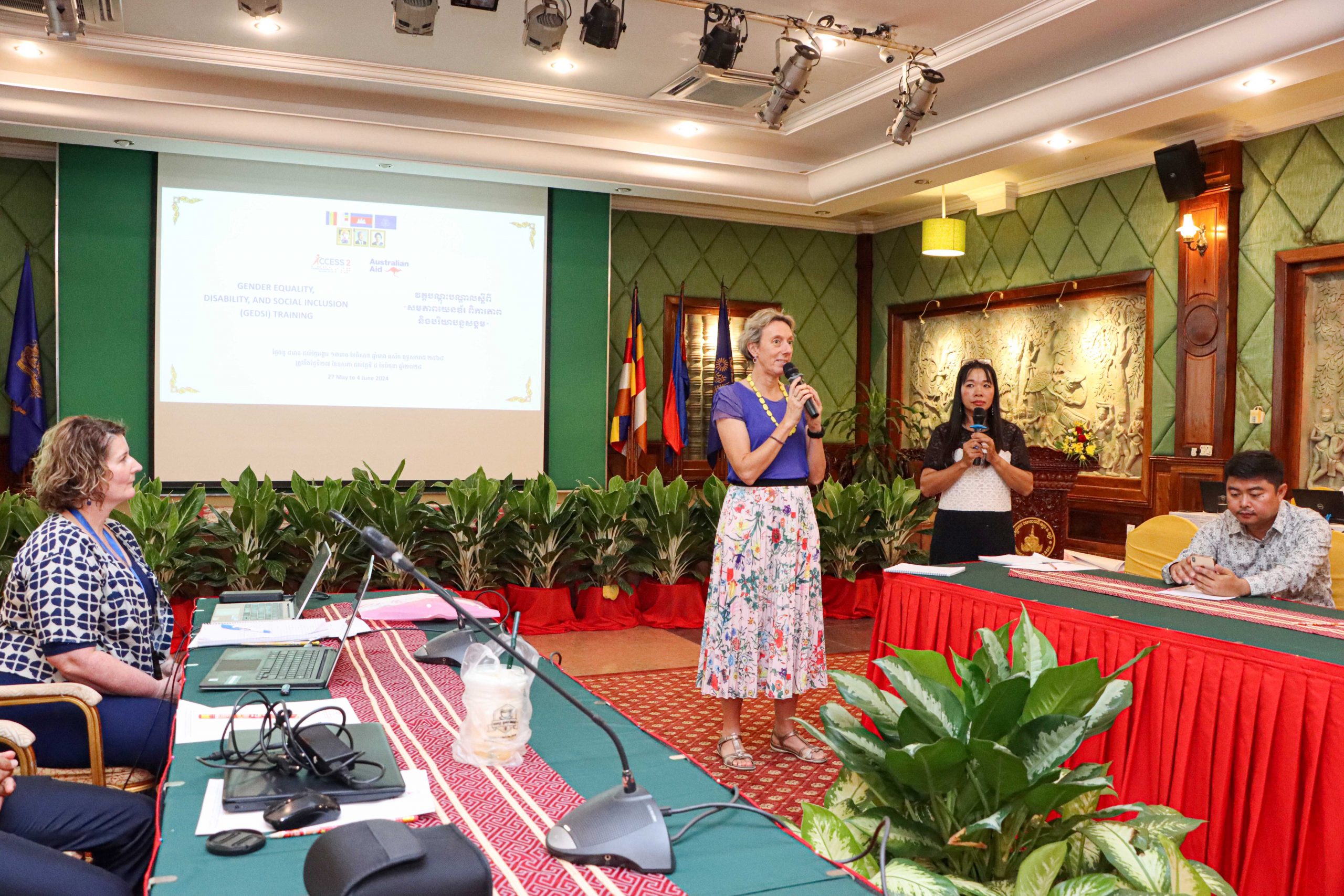The Australia-Cambodia Cooperation for Equitable Sustainable Services – Phase 2 (ACCESS 2) program, held four separate Gender Equality, Disability, and Social Inclusion (GEDSI) training workshops in Siem Reap, in late May 2024.
Participants included 12 Strategic Implementing Partners (SIPs), Royal Government of Cambodia (RGC) counterparts from MoWA, MoSVY, DAC and MoH, representatives of the Provincial authorities of Kampong Cham, Kampong Speu and Siem Reap, PDoWA, PoSVY, and PHD, and all ACCESS 2 staff.
The GEDSI training workshops were designed to strengthen the overall integration of GEDSI principles by mainstreaming GEDSI practices in our daily work, including program operations, governance, communications, as well as SIP activities that are designed to address persistent challenges and barriers faced by GBV survivors, PWD and other marginalized and minority groups which hinder them from participating equitably in our society.
 The GEDSI training workshops covered concepts of sex and gender, disability, LGBTI, equality vs. equity, intersectionality, social inclusion and exclusion, various GEDSI approaches, and application of GEDSI in the workplace.
The GEDSI training workshops covered concepts of sex and gender, disability, LGBTI, equality vs. equity, intersectionality, social inclusion and exclusion, various GEDSI approaches, and application of GEDSI in the workplace.
Small group discussions provided an opportunity to learn and share practical GEDSI applications and examples from the field as well as share ideas on streamlining GEDSI in our daily work practices.
Ms Sophia Cason, Team Leader for ACCESS 2 program, stated during the training provided to disability government counterparts, “It is very important to apply a GEDSI approach to all of the work that we do in order to ensure the best outcomes for the persons we are working to provide better quality services for.” She thanked everyone for attending the training and encouraged them to make plans to apply GEDSI to their work.
ACCESS 2 will continue working with national, subnational level government, and civil society including non-government organisations (NGOs), Organisation of Persons with Disabilities (OPDs), and women’s and indigenous people’s organisations to ensure that persons with disabilities and survivors of GBV have better access to the services they need.
ACCESS 2’s key priorities are working to promote disability inclusion, rehabilitation services, indigenous development, and better services for survivors of GBV.











